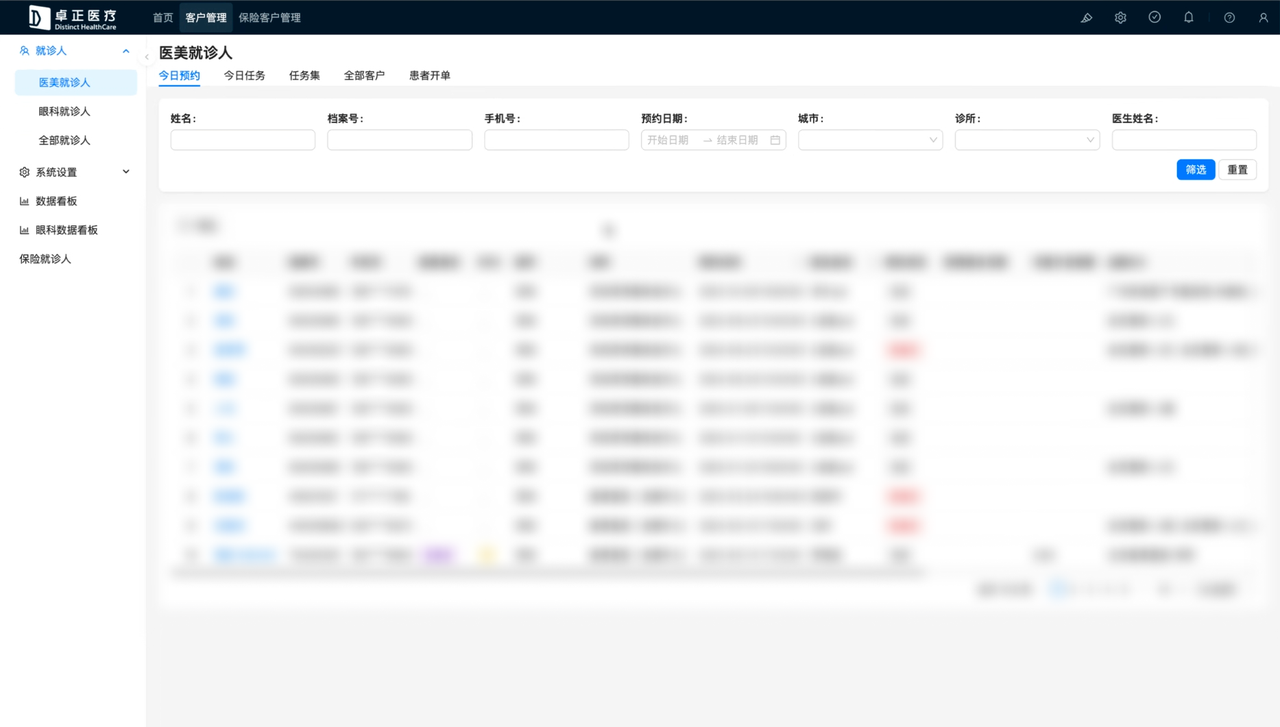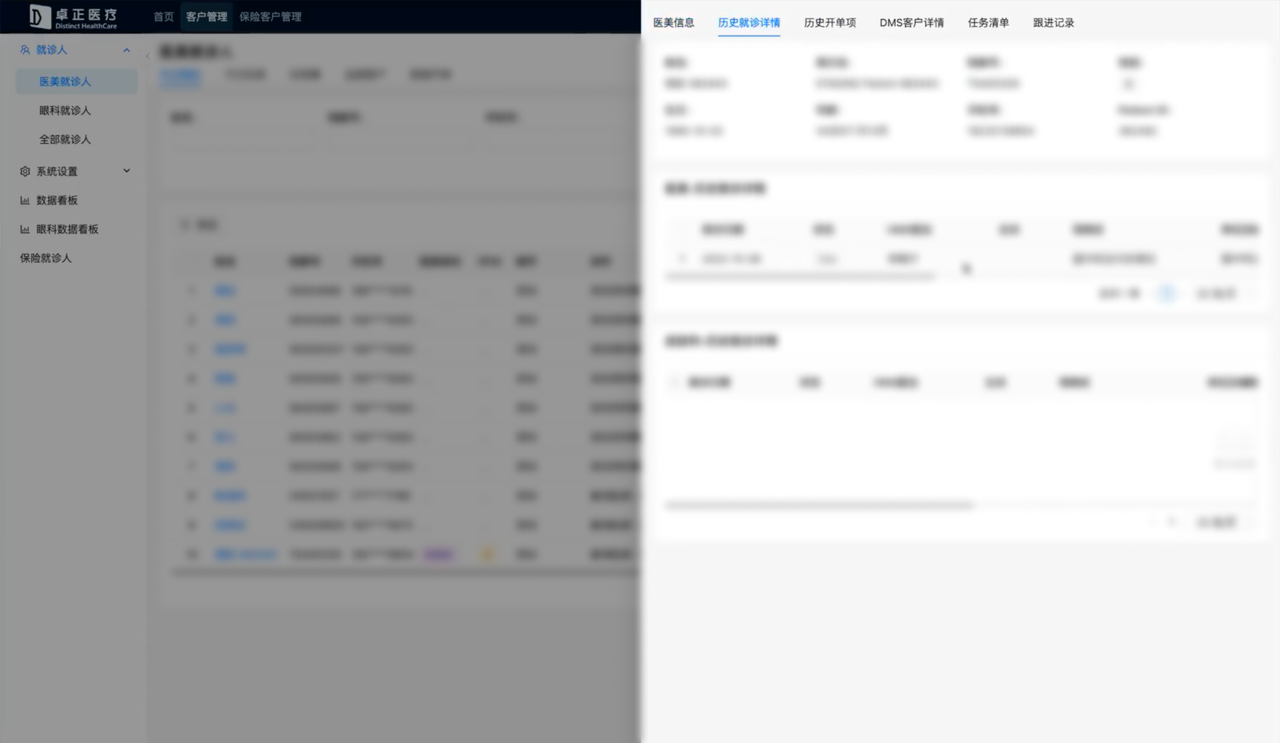How Distinct HealthCare Uses NocoBase to Build a Personalized, Long-Term Care System
 Lucy Zhang
Lucy Zhang
Originally published at How Distinct HealthCare Uses NocoBase to Build a Personalized, Long-Term Care System - NocoBase.
The Family Doctor Model Begins to Take Shape in China
In countries like those in Europe and the U.S., the General Practitioner (GP) system has long been the norm. From routine checkups to vaccinations and chronic disease management, patients are cared for by the same doctor over time—ensuring stable and continuous care.
In China, however, this model is only beginning to emerge. As public awareness of health increases, family doctor-style services have gradually taken root through market-driven, chain-based clinics. Especially in major cities, a new generation of clinics is experimenting with GP-centered models that prioritize proactive care, personalized follow-ups, and long-term doctor–patient relationships—distinct from the traditional pay-per-visit model of public hospitals.
Distinct HealthCare is one of the pioneers in proposing and practicing this family doctor-style, chain-clinic approach in China.
Distinct HealthCare’s Journey into Family Doctor Care
Over a decade ago, Distinct HealthCare opened its first clinics in China’s major cities with a vision to build a full-spectrum, long-term care model centered on general practice. Today, the company has expanded to 12 cities, operating one-stop, multi-specialty clinics staffed by more than 300 full-time physicians from top institutions like Peking Union Medical College, Peking University, and West China Medical Center. Their services span pediatrics, ophthalmology, dermatology, aesthetic medicine, and more.
Distinct HealthCare operates on a membership-based model: a single “family card” connects all family members, whose health is continuously managed by a dedicated medical team. Rather than visiting hospital departments based on symptoms, members receive long-term, personalized care—as if they had a trusted medical partner who understands their family’s needs.
But healthcare—especially in China—remains a conservative and slow-to-evolve industry. Most public hospitals operate in departmental silos and pay little attention to follow-up care or patient engagement. Even in the private sector, mature models are still rare. For Distinct HealthCare, pioneering a model that blends chain operations, family doctor services, and proactive care meant forging their own path—without off-the-shelf digital tools or proven frameworks to rely on.
As the business scaled, new challenges quickly emerged:
Clinics in different cities operated differently, making standardized service workflows difficult to implement;
Each specialty had unique follow-up needs, making generic tools hard to adapt;
Development resources were limited, and each new feature required long back-and-forth cycles;
As services became more refined, manual work still dominated daily tasks—reducing efficiency and increasing the risk of errors.
Distinct HealthCare realized that traditional development approaches and commercial systems could no longer meet the demands of their high-frequency, lightweight, and fragmented care model.
Building Without a Coding Background
In search of the right digital tools, Distinct HealthCare tested various no-code platforms and traditional SaaS solutions. It didn’t take long to discover that many of these tools, despite appearing simple, posed significant barriers: some were too rigid or difficult to configure, while others required the dev team to adopt completely new logic—an impractical expectation given limited resources.
What they really needed was a tool that fit just right:
Flexible enough to integrate with existing systems and support custom data structures;
Simple enough for product managers to build interfaces independently;
Ready for private deployment, allowing secure and scalable expansion;
Technically open, so developers could retain control over databases and backend logic.
That’s why they chose NocoBase.
“Some minor features? I can tweak them myself—no need to wait on the dev team.” — Iris Meng, Product Manager at Distinct HealthCare
At Distinct HealthCare, this ability to build independently was a key reason NocoBase was quickly adopted.
More importantly, NocoBase wasn’t meant to sideline developers—it helped break down complex workflows into a more flexible toolchain. The backend logic stays in the hands of the dev team, while product managers can rapidly build and adjust interfaces. It’s both efficient and stable.
“We didn’t choose no-code—we chose a smarter, faster way to work.” — Iris Meng, Product Manager at Distinct HealthCare
One System, Seven Teams: How NocoBase Sparked Internal Innovation
Distinct HealthCare’s first project with NocoBase was a follow-up management system. Unlike traditional hospitals that rely on patients to return voluntarily, Distinct HealthCare aimed to offer proactive, ongoing care—tailored to each specialty and scenario, with customized tasks, follow-up content, and communication rhythms.
They started with aesthetic medicine and ophthalmology, building a fully functional, custom follow-up system using NocoBase.

Follow-Up System
Thanks to NocoBase’s open APIs, the system integrates data from sources like HIS, EMR, and pharmacy systems. On a single interface, doctors and nurses can view patient histories, prescriptions, and appointments; create follow-up tasks; and log communications—eliminating the need for tab-switching or manual lookups. This greatly streamlined frontline operations.
From initial evaluation to rollout, the project took just three months—cutting development time by about 60%. After launch, both follow-up completion rates and patient satisfaction improved significantly.
As word spread, other departments began requesting systems tailored to their needs. Thanks to NocoBase’s flexible configuration and fine-grained access controls, Distinct HealthCare trained business teams to build independently. So far, seven small teams across different departments have built internal tools on NocoBase—establishing a shared platform with decentralized development.
“It’s like a step up from complex spreadsheets—our teams can build what they need without waiting on the dev team.”
— Iris Meng, Product Manager at Distinct HealthCare
Rather than bottlenecking development, this shift empowered business teams and unlocked a new mode of cross-functional collaboration.

The Follow-Up System: Seamless Integration with Diverse Systems
More Than Just a System
For Distinct HealthCare, NocoBase isn’t just a tool—it represents a new approach to digital transformation. It enables teams to build and adapt internal systems more efficiently, without being constrained by dev cycles or one-off launches. Instead, teams can iterate continuously, turning real-world frontline needs into standardized workflows—quickly.
In an industry still shaped by intuition, manual work, and long-standing routines, this kind of agility is precisely what makes family doctor-style care truly achievable.
As Distinct HealthCare states on its website:
“We stay true to the essence of medicine. Our diagnoses are grounded in evidence-based practices, avoiding unnecessary tests or medication.”
It’s this mindset—and the efforts of pioneers like Distinct HealthCare—that allow digital tools to go beyond surface-level change and truly embed themselves into the heart of healthcare, helping a traditionally slow-moving industry take meaningful steps forward.
More Customer Stories:
What made Japan’s leading real estate firm switch from Salesforce to open-source NocoBase?
How Second-Brain built an AI system for financial institutions with NocoBase
How the No.1 AI Voice Recorder Brand Built Its Internal Systems
Beyond Spreadsheets: Classmethod’s Employee Data Management with NocoBase
How One Furniture Factory Built Its Own ERP—No Coding Needed
Subscribe to my newsletter
Read articles from Lucy Zhang directly inside your inbox. Subscribe to the newsletter, and don't miss out.
Written by


